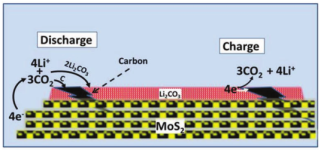- Joined
- Oct 22, 2002
- Messages
- 38,747
- Location
- Frozen in Michigan
- Gender
- Old Fart
- Basic Beliefs
- Don't be a dick.
[YOUTUBE]https://youtu.be/7t98dQ9BhEk[/YOUTUBE]
Research links on the Youtube page.
Carbon Dioxide battery technology represents a huge opportunity not only to vastly improve energy storage and output capacity, but also to capture CO2 straight out of our atmosphere and lock it away. Research is going on all around the world but in the last few weeks a research team from UIC in Illinois has published a paper proving that a Lithium Carbon Dioxide battery can now be recharged successfully and hold far more energy than a traditional battery, and another team working at MIT in Massachusetts has shown us a revolutionary system that significantly improves the efficiency of capturing pure CO2 from ambient air streams. This week we take a look at both of them.
Research links on the Youtube page.

